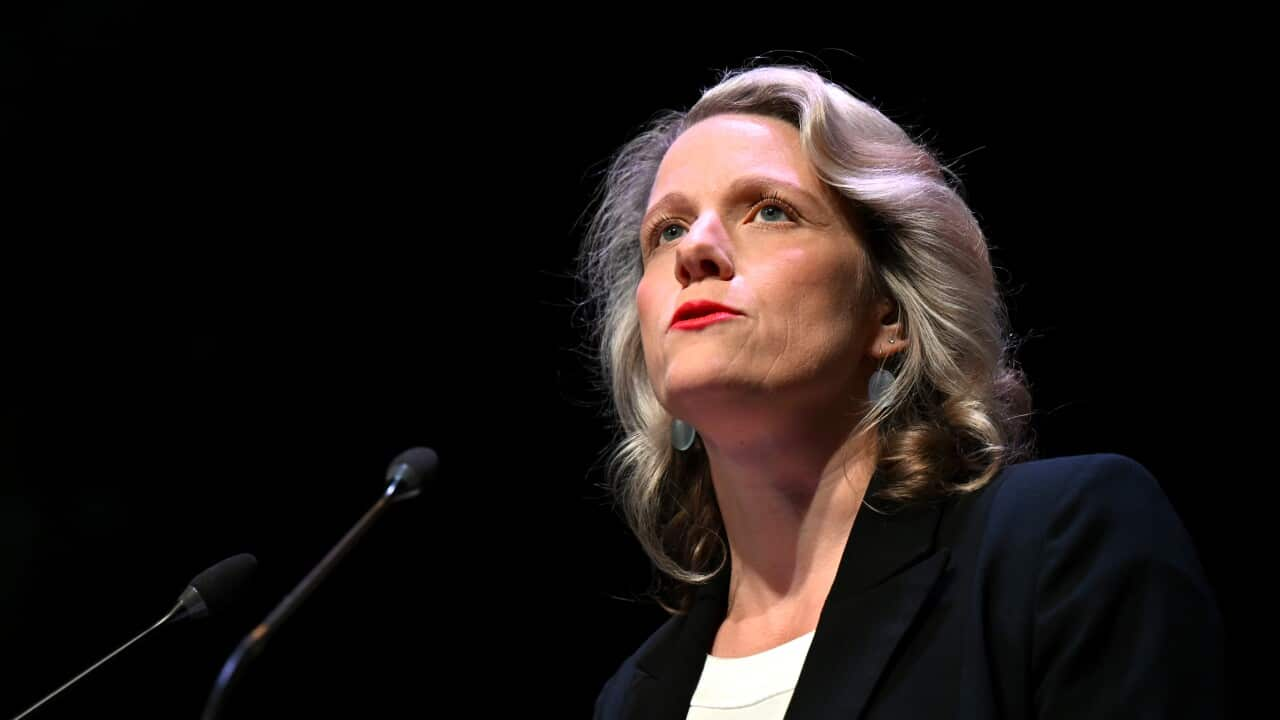(Transcript from World News Radio)
Among the world's top ten most popular study destinations, many of the young international students who come to Australia here are completely reliant on their universities for information on everyday issues, like sexual health.
But there's uncomfortable evidence that some students might be missing out on important information - and the language barrier could be one of the reasons.
Marcia de los Santos reports.
(Click on audio tab to listen to this item)
After months of planning for her overseas study trip, 20-year-old Zhang Jan arrived in Sydney from China to complete a Master's Degree in Finance at the University of New South Wales.
It was her first solo trip to Australia, away from her family and friends.
Less than a month after her arrival, Jan met her boyfriend, had sex for the first time and eventually moved in with him.
"We got into a relationship after about 2-3 weeks, which is really, really fast. I wouldn't think I would do the same thing, especially back in my own city, and now we live together. I'm kind of happy living with him 'cause that's just part of the relationship."
Jan say her current attitudes about premarital sex and relationships do not reflect the culture she grew up in.
So when her parents announced they were coming to visit her from China, she had to make a few adjustments.
"We rented a two-bedroom apartment and pretended we lived in separate rooms. When my parents are visiting my parents take the main bedroom, the master room and I live in a small one and my boyfriend was living on a couch - for that one month. I don't think, deep down my parents believed me. But I still have to tell them that I didn't do such things, just to comfort them and to show some respect to them and to what they believe.
Director of UNSW Health Service Dr Bill Kefalas says international students represent a challenge for Australian universities' sexual health programs.
"The other issue with a lot of the Asian students especially is the fact that it's a very cultural family orientated thing, especially students coming from high status families, especially females, they are very strict about the fact that they are virgins. That sort of group there has been hardly any education about sex because of that expectation that it wouldn't be happening."
The University of Adelaide's Head of the Discipline of General Practice is Professor Nigel Stocks.
He says international students have to deal with the pressures of getting a higher education while they're also negotiating quite significant differences in culture, values and attitudes when they come to Australia.
A study he co-authored in 2009 asked female students from China and Malaysia about their knowledge and attitudes on sex.
"There was a sense that came through in the focus groups studies, that there was also a sense of potential shame if somebody became, I think it was 'soiled goods', was one of the phrases used if somebody had had sex with somebody else. And so there was quite a degree of dissonance there, around sexual relationships."
The study also revealed these students were more likely to become sexually active in Australia, despite their limited sexual health knowledge.
"Now these students reported that they had limited sexual health education in their home countries and that they did not understand the quality of the services that were available for them here in Australia and in particular their ability to go to a general practitioner or a health service to obtain contraceptive advice and/or contraception."
Zhang Jan says in China, accessing accurate information about sexual health and relationships can be challenging for young people, particularly if they come from families where sex is considered taboo.
"I never get any like, real proper education about such things, never, like teachers are very shy to tell you stuff like that as well. So I guess a lot of like young girls they sometimes tend to, you know, try to please their boyfriends, so when they meet a guy who's not responsible, the girls get pregnant or get harmed in some way. Things like that happen, partially because we don't have any proper sex education, so suddenly we're thrown into like a different country where there's no family no friends to ask help from, and we meet a guy who shows that he wants to take care of us, so if they want to ask for something in return a lot of girls would say yes."
Editor of MELD magazine Hieu Chao says his not-for-profit Australian news website is designed to reach out to international students.
For the past three years the magazine has been running a campaign called "SEXtember".
"A lot of the content that we put out during SEXtember, students are really interested in. In fact a lot of people who found out about Meld have actually found us out through SEXtember because funnily enough people were quick to say, 'Oh you're that publication that does the sex stuff' I's all about creating an environment for them to feel safe."
Mexican-born student Lilia Villela explored the shifting sexual attitudes of international students living in Australia in an article for Meld magazine.
She says sex and sexual issues are popular topics of conversation among her young overseas friends.
"They were having too much casual sex and they were drinking too much and they started saying like, that's not the way I usually behave, it's just that here, with so many different people, so many internationals, it's made it more appealing. "
Dr Limin Mao is the Senior Research Fellow at the University of New South Wales Centre for Social Research in Health.
She warns that sexually transmitted infections are increasing in Australia, and that the most vulnerable people are under the age of 24.
"Unfortunately there is an increasing epidemic of sexually transmitted infections particularly among young people, like chlamydia, it's increasing. So I think that yes we have better technology, better resources, better medicine, better treatment but I think the issue of young people and better sexual health is probably the area that's worth more attention."
Dr Kefalas agrees sexually transmitted diseases are an unintended outcome of poor sexual health education.
Another is unwanted pregnancies.
"They come to a society where, you know, sex is more openly talked about quite a few have their first sexual relation almost certainly not known by their parents. And we've seen quite a few cases at the clinic when they've contracted STI (sexually transmitted infection) after their first sexual encounter. We certainly know through some of the data from the health insurer, that there is concern about the number of unwanted pregnancies that are terminated in the overseas student population."
Adelaide University's Professor Nigel Stocks says universities should ensure international students receive appropriate sexual health information and that they understand the role of health services in Australia.
"It would be good if that could be continually evaluated and improved over time because, although being very similar to the rest of the population, students tend to have their own subculture, and it's a period of difficult transition from being an adolescent or young adult through to greater maturity, both at undergraduate and postgraduate level."
Dr Kefalas says universities are aware of this need and are exploring ways to get the message through to students from diverse backgrounds.
"Peer to peer learning is one area to look at. They are called wellbeing ambassadors. They are students that are trained up in the area of sexual health promotion and quite a few of those ambassadors are overseas students. So they speak the language and have a better understanding of how to connect with those students. But it's in a fledgling state at the University. It's a small program."
He says poor language proficiency is contributing to poorer sexual health outcomes among international students.
"We make an assumption that when one comes to a university to study, that they have a reasonable understanding of English, but there are still quite a few language barriers when you are talking about non-academic issues. So a lot of overseas students have quite good English in their area of study, but then when you want to go and talk about other issues, their English and their vocabulary are not as great. So targeting messages in the own languages is something we could do. We could probably do better trying to communicate with some of the students through their clubs. We could probably do better within the University coordinating, combining our overall health promotion message, and refining them to the different groups."









